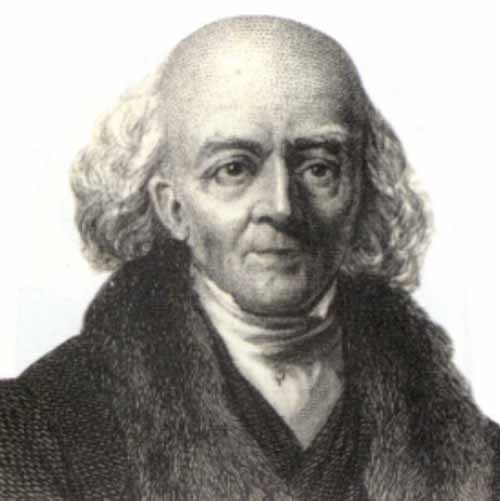Samuel Hahnemann
(1755 - 1843)


German physician Samuel Hahnemann was the founder of homeopathy. A vitalist, Dr Hahnemann believed that disease and disorder were triggered when the "vital force dominates the human body in an unopposed and dynamic way". Homeopathic healing methods are inspired by the so-called law of similars: Similia similibus curantur ["like cures like"]. Homeopaths claim that the cause of a disease-like sign or symptom in a healthy body is itself capable of curing the sign or symptom. This notion has ancient historical antecedents but is medically unsupported. Prudently, Hahnemann demanded payment of his fees in advance.Homeopathic potions are extracted from natural resources like plants, animals and minerals and then diluted by many orders of magnitude. According to the homeopathic "Law of Infinitesimals", the more dilute a solution is, the stronger its effect. Hahnemann's system of medicine is spelt out in his Organon of Rational Healing [Organon der rationellen Heilkunde. Dresden, 1810].
Hahnemann himself died in Paris in 1843 on the eve of the anaesthetic revolution. He had previously attacked the use of "artificial" pain-relievers as an unwarranted interference with Nature's beneficial "punishments", though opium and morphine are natural products of Papaver somniferum, the opium poppy. After his death, Hahnemann's followers, in common with most other naturopaths, opposed the dangerous and unnatural innovation of pain-free surgery. "If you suffer", leading homeopath Elizabeth Cady Stanton (1815-1902) told mothers-to-be, "it is not because you are cursed by God, but because you violate his laws". Yet for the most part, homeopathic opposition to the use of surgical anaesthetics didn't stem from an idealised conception of pain: instead, homeopathic remedies were viewed as superior to their toxic "allopathic" counterparts.
Only a few naturopathic radicals would go as far as the University of Michigan's John Jolliffe Mullheron. In "Pain" (1869), his unpublished M.D. thesis, Mullheron propounds the most radical abolitionist position: "By leading a life in strict conformity with the requirements of physical laws man will live a life of absolute immunity from pain or suffering of any kind whatsoever". Mullheron's aspiration was admirable even though his proposed mechanism was untenable. A life of absolute immunity from pain or suffering of any kind whatsoever can only be guaranteed by radical gene therapy - or more doubtfully, by utopian designer-drugs or wireheading. Rare cases of congenital insensitivity to pain crop up sporadically today; but if we are to function well, our nociceptive signalling systems need to be genetically redesigned, not disabled.
Homeopathy is now scientifically discredited. But devotees of evidence-based medicine may observe that the remedies of early homeopaths tended to kill fewer of their patients than the interventions of orthodox "allopathic" doctors. Contemporary practitioners of alternative medicine note that homeopathic treatments do not cause addiction and have no known side-effects. This would appear to be the case; multiple dilution in the name of greater potency ensures they possess no active ingredients.
HOME
Search
Resources
Snapshots
Homeopathy
Utopian Surgery
Samuel Hahnemann
Refs and Further Reading
Anaesthesia and Anaesthetics